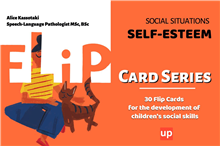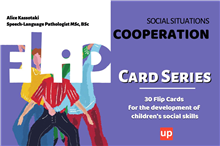Life Skills for autistic adolescents
Life Skills for autistic adolescents aims to help autistic teens address that challenge and develop the necessary skills to cope successfully.
by Alice Kassotaki - Speech Language Pathologist MSc, BSc
Life Skills Age Group: 12 years and over This book includes 40 stories designed to help readers acknowledge and understand different social norms and learn how to respond appropriately. Each story is accompanied by activities that encourage adolescents to practice their learned skills in a structured manner. Additionally, the book covers important topics such as: Developing empathy and self-awareness to help adolescents identify and accept their feelings. Guidance for parents and teachers to support adolescents in developing social skills effectively. "Life Skills for Autistic Adolescents" is a valuable resource for helping older children improve their social skills and build healthy relationships.
























